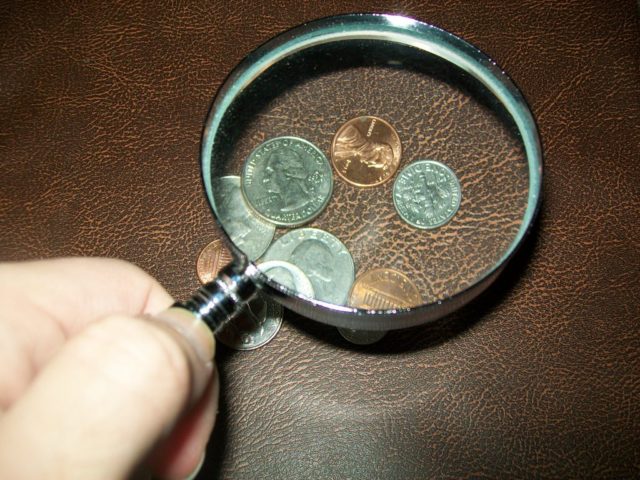When someone requests an evaluation of his or her rare coins, it is usually for a specific reason – an insurance appraisal, a division of assets, or to learn the value for the purchase or sale of a collection. It’s important to understand the basics of how coin evaluations work to make sure you get a fair valuation and – if you’re planning to sell your coin collection – a fair price.
How do you choose a coin evaluator/appraiser?
Many people who live near a trusted and reputable coin dealer prefer to visit the dealer in person. It is best to arrange your meeting ahead of time so that neither of you is rushed. You’ll want to make sure the dealer handles the type of coins you have, and whether they may be interested in buying your coins.
If your collection is too large to transport, you may be able to find a coin dealer who can meet you at your home, bank, or office. It is also possible to find a coin dealer online who is qualified to evaluate your coins. If you choose to send your coins to a dealer you find online, be certain to ask for, and check his/her references. When sending coins via US mail, I recommend sending as Registered/Insured mail with return receipt. For security purposes, ask to send your parcel to a Post Office box vs. sending to a street address of an identifiable coin-related business name.
Consider doing business with coin dealers who are associated with respected numismatic organizations like the American Numismatic Association, or Professional Coin Grading Service. Grand Rapids Coins is a member of ANA, PCGS, NGC, CAC, and the Central States and Michigan State Numismatics Societies. And whether you choose to work with a Grand Rapids coin dealer or an online dealer, verify their reputation with the Better Business Bureau to find out whether any complaints have been made against the business.
What types of coin evaluations are there?
When you talk to the dealer in advance, make sure you are both on the same page regarding the type of evaluation you are seeking, and why. Many coin dealers who evaluate coins will also offer to buy the collection from you, if that is your end goal. Some dealers offer free evaluations, at least when you plan to sell the collection. If you have no intention of selling your collection but need an evaluation for insurance or estate planning purposes, you will need a more formal appraisal. Such detailed appraisals are available for a fee. With Grand Rapids Coins’ evaluation service, if an appraisal requires a fee, we will quote the fee for your approval prior to starting the appraisal.
The appraised value of your coins will differ depending on whether you are looking for an insurance appraisal or an evaluation for selling the coins. When receiving an appraisal for insurance or estate planning, you are normally seeking replacement value for the collection. The value of such appraisals represents the retail value…the amount you would expect to pay if you were buying those coins today. When selling coins, the evaluation or appraisal will be the amount a dealer would pay for the collection. Depending on the type of coins, dealer bids are normally between 80-95% of the retail value.
How do you prepare for the coin evaluation?
Never, EVER clean your coins! Cleaning coins will undoubtedly decrease their value, often drastically. It really isn’t necessary to organize the collection, particularly if you have no experience in proper handling of coins. If you choose to split your coins into groups, a Red Book (A Guide Book of United States Coins) may prove useful. Existing documentation, such as old inventories or insurance appraisals will also be useful.
What does a coin evaluator do?
The actual steps in an evaluation vary depending on the purpose and level of detail required. Coin values are based on mint mark, date, demand, condition, eye appeal, and oddities like minting errors, varieties, and mistakes. In general, the evaluator can quickly determine which parts of the collection are primarily an accumulation of pocket change, and which coins may be valuable. An experienced evaluator can quickly sort out the more valuable coins in the collection. He or she may even advise having certain coins authenticated by a third party grading service, and can send them to the service for you, if desired.
If you have indicated that you would like to sell your coin collection, the dealer may offer to purchase all or part of the collection. The evaluator may also be able to recommend how to sell the coin collection, may be able to assist in brokering a sale, or recommend whether it would be wise to sell a certain part of the collection (such as world coins, ancients, or a certain specialty) in a particular way.
Finally, ask questions. Any dealer evaluating your coin collection should be willing to answer all of your questions. If, for any reason, you feel you are not getting the right answers, find another dealer! After all, they are your coins!
At Grand Rapids Coins, we have been performing rare coin evaluations for a number of years. Understanding the process up front can help you make decisions about how to handle your collection. If you have more specific questions about how a coin evaluation would work for your own rare coins, contact Grand Rapids Coins.

